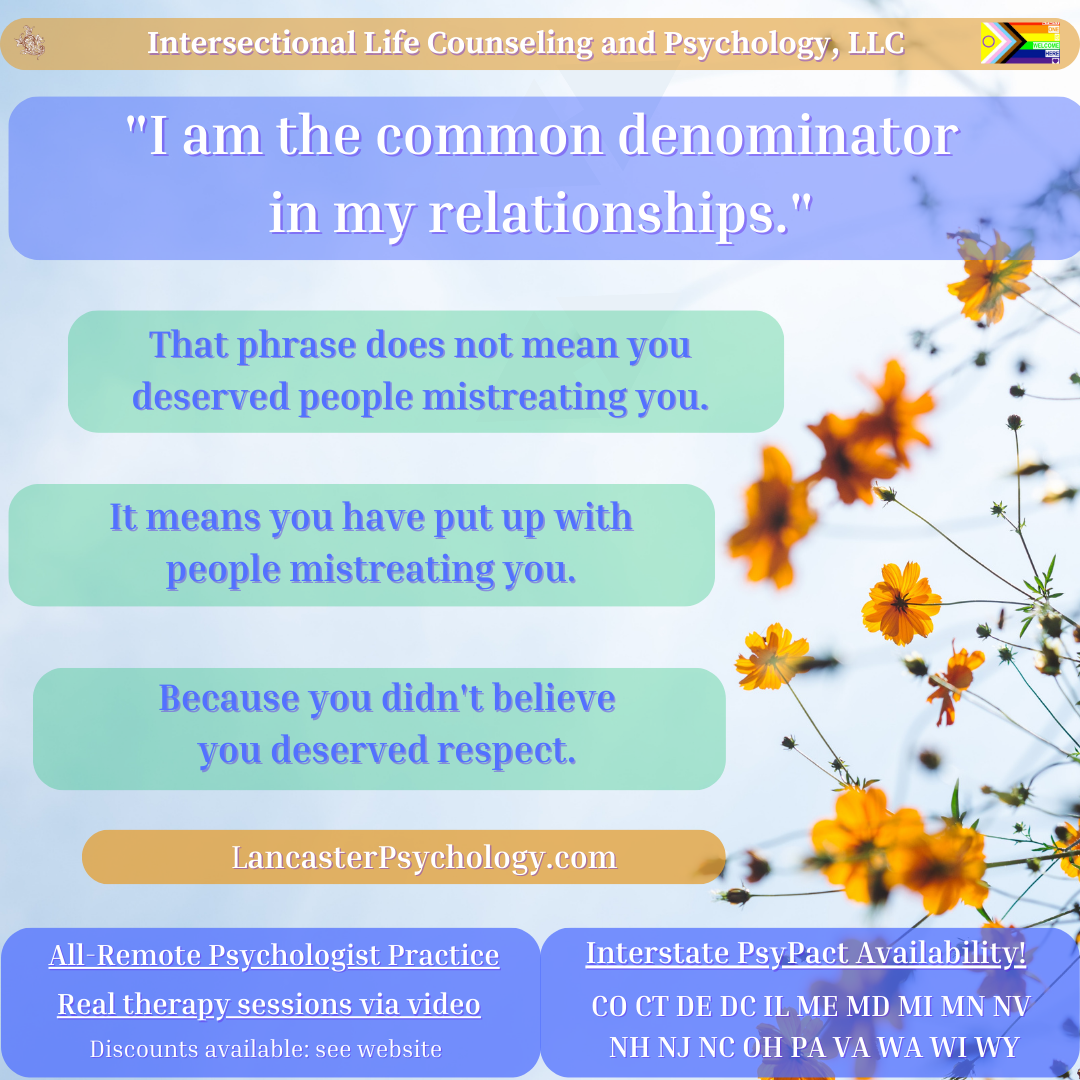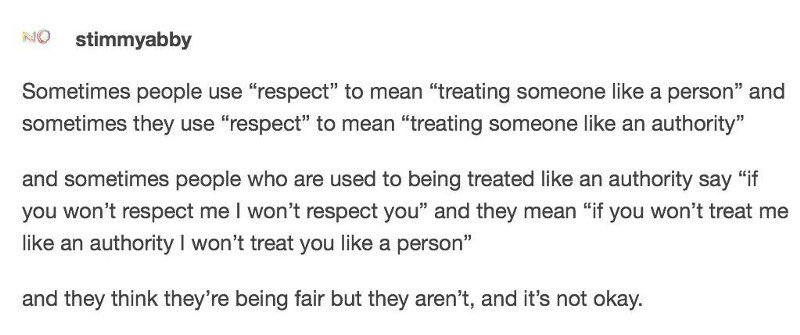A concept I often hear misinterpreted by people with a history of childhood trauma. ❤️

PsyPact member
Covid Conscious Therapists member
Rates and payment
Sliding-scale discounts
Email: IntersectionalLife@gmail.com
A concept I often hear misinterpreted by people with a history of childhood trauma. ❤️

PsyPact member
Covid Conscious Therapists member
Rates and payment
Sliding-scale discounts
Email: IntersectionalLife@gmail.com
It’s easy to feel overwhelmed, anxious, and depressed about recent events. There are a lot of really overwhelming, scary, and depressing things happening! What can you do to maintain your balance, stay grounded, and keep a sense of optimism?
Dr. Glenda Russell is a licensed psychologist and researcher in Colorado with whom I had the great fortune to work during my training in Michigan. In the short video below, she has some really important and reassuringly concrete things to say about moving forward during frightening times.
This clip is only five minutes long, but it can really help.
Did you find this message encouraging? I hope so, and I hope you have friends and loved ones to connect with!
If you need additional support dealing with symptoms of depression, PTSD, or anxiety from a qualified therapist, please review our quick chart to see how you can access our therapeutic services from anywhere in Pennsylvania!
I recently saw this tweet from writer Jacinda Townsend:
Jacinda, you are definitely not alone!
For those who grew up in a family of origin with appropriate boundaries, learning how to set boundaries probably happened as invisibly as learning to walk, write their name, or sing songs. Interpersonal interactions were healthy and just “happened that way.” Those people often don’t even realize that’s how they are living. (See: fish, water!)
But for those of us from families with more dysfunction, we may have just as invisibly learned unhealthy boundaries, and it will greatly affect our daily lives. Like much of self-parenting, this is harder to learn in adulthood, but necessary and definitely worth the work.
Since I am also a therapist who hands out materials on boundaries to my clients, here are links to two articles I frequently use with clients. Others may also find them useful:
Like any skill, boundary setting takes repeated practice over time. We may see how we’re “supposed to” do it right away, but that doesn’t mean we will be able to implement it right away. Throw away that perfectionistic expectation. But you can start experiencing relief right away from even small changes! Read the articles and see what parts apply to your experience. Start small, keep working on it, and develop the habit of treating your boundaries as being important! ❤
मथुरा की खुशबू, गोकुल की बहार,
वृंदावन की सुगंध, बरसाने की फुहार,
राधा की उम्मीद, कान्हा का प्यार,
मुबारक हो आपको होली का त्योहार।
From time to time, our clients bring in articles, books, essays, or other materials that they have found especially helpful in work we are doing. Since one of the most valuable reviews is from someone who has been there, we’d like to share the helpfulness with others who may need it!
Today’s link is an article by Celeste Scott. It features an aspect of self-parenting: learning to belong to yourself instead of waiting for permission or approval from others.
To learn about other aspects of self-parenting (or self-re-parenting) in adulthood, read more on our blog here.
Be loving to yourself and to others: Mental illness deserves as much care as any other illness or injury. It’s not “laziness” or being “weak” or flawed in character. Practice acceptance and support instead of criticism.
Mental illness is usually unlike the movies. Cultivate loving kindness to yourself instead of judgment and criticism. [Try Loving Kindness meditation by Tara Brach to spread love to self and others.]
Remember that mental illness often affects every aspect of a person’s life and health.

Click through to Twitter to see Azie Dungey’s (@AzieDee) thread on the complexity of trust issues:
It’s very important to know what NOT to say when someone is grieving:
Often just the words “I’m so sorry” are enough.